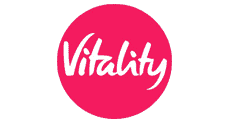What is medical history disregarded (MHD) underwriting?
Written By: Stuart Hendy
What is medical history disregarded (MHD) underwriting?
When considering health insurance for your company and its employees, how your policy is evaluated can affect costs and claims. We will explore if medical history disregarded underwriting (MHD) is the right choice for your business and its employees. MHD doesn’t consider past health issues, ensuring comprehensive cover. Unlike standard underwriting, MHD doesn’t exclude cover for eligible pre-existing conditions. It’s particularly useful if you have employees with long-term health concerns.
Get Tailored Health Insurance Quotes from Top UK Insurers
A group health insurance plan lets you and your employees use private healthcare when necessary. You can adjust the policy to fit your needs. Some traditional ways of deciding who gets coverage, like Moratorium, Full Medical Underwriting (FMU), and Continued Personal Medical Exclusion (CPME), might not cover your employees’ health conditions in the five years before joining the policy. But with MHD underwriting, those exclusions don’t apply. Previous medical conditions are covered, even if they were treated recently.
However, this option is only available for group private health insurance schemes with a certain number of employees, typically requiring at least 20 employees. Therefore, it’s not applicable for personal health insurance but is specifically designed for company policies.
What does MHD underwriting cover?
MHD covers pre-existing conditions without considering when they occurred. Here’s what MHD in medical health insurance includes:
- Comprehensive coverage for pre-existing medical conditions.
- No exclusions based on past medical history.
- Conditions existing before the policy start date are covered.
- Cover acute conditions.
Medical history disregarded underwriting typically covers short-term and sudden conditions, known as acute conditions, like heart attacks, burns, and fractures.
However, it usually doesn’t cover long-lasting and ongoing conditions, called chronic conditions, such as asthma, diabetes, and Alzheimer’s. So, while it may provide cover for sudden health issues, chronic conditions may not be included in the policy.
What are the benefits of MHD underwriting?
MHD underwriting helps you provide full health insurance to all your high-risk employees. Here are some benefits:
Cover for Pre-existing Conditions
With MHD underwriting, existing health issues are covered, regardless of when they occurred. This means employees can get medical treatment for conditions they had before getting the insurance.
Inclusivity for Chronic Conditions
Even if someone has a long-term illness like asthma or diabetes, MHD can still cover them for related health problems. This ensures that employees with chronic conditions can get the care they need.
Attracting Top Talent
Offering comprehensive health coverage through MHD can make your company more attractive to potential employees. Knowing they’ll have good private health insurance can be a big draw for job seekers.
Keeping Things Private
With MHD medical insurance, employees don’t have to share their medical history when making claims. This helps maintain their privacy and confidentiality regarding their health.
Less Admin
MHD means less paperwork and administrative hassle for both employers and employees. Since medical history isn’t considered, there’s no need for extensive forms or documentation.
Quick Claims
Claims are processed faster with the MHD policy because health insurers don’t need to check medical records before deciding on a medical cover. This means employees can get the care they need without delays.
Medical history disregarded underwriting disadvantages
Limited Cover for Chronic Conditions
MHD underwriting may not cover ongoing health issues like asthma or diabetes, which require continuous management.
Higher Cost
The comprehensive coverage offered by MHD underwriting often comes with a higher premium compared to other types of insurance.
It’s Unavailable to Smaller Groups
Some insurers may not offer MHD underwriting, making it challenging to find suitable cover for your employees.
Future Exclusions Risks
Switching insurers or insurance policies may result in new exclusions being applied to the MHD cover, limiting future coverage options.
It’s Harder to Switch Your Insurer
Transitioning to a new insurer with MHD underwriting can be complicated, especially for group schemes covering multiple employees.
What isn’t covered
Certain treatments and conditions are typically not covered by medical history disregarded underwriting:
- Plastic Surgery/Cosmetic procedures, such as facelifts or breast augmentation, are usually not covered.
- Treatment for substance abuse or addiction is typically excluded from coverage.
- Medical expenses related to pregnancy, childbirth, and infertility treatments are often not covered.
- Ongoing chronic health issues like asthma, diabetes, or hypertension may not be covered under this type of insurance.
While MHD underwriting provides comprehensive cover, these medical exclusions should be considered when evaluating policy options.
Other Types of Underwriting
Other health insurance underwriting options available include:
Moratorium Underwriting
This option typically excludes coverage for pre-existing health conditions that you’ve had in the past few years (often around five years). Still, it may cover them in the future if you remain symptom-free for a set period, usually two years.
Full Medical Underwriting
With this option, you provide detailed information about your medical history, including pre-existing conditions, treatments, and medications. The insurer assesses your risk and may offer coverage with tailored terms or exclusions based on your health history.
Continued Personal Medical Exclusion (CPME)
This option is similar to full medical underwriting, but it allows you to continue coverage with your current insurer while excluding specific pre-existing conditions. This means that these conditions won’t be covered by the policy.
Which underwriting option is best for my business?
Choosing the right health insurance is all about finding what works best for you and your team. If your employees deal with ongoing health issues, the MHD insurance underwriting option could be a good fit.
You also have some flexibility here – you can mix things up, like choosing a mix of MHD and a moratorium plan. Plus, if your employees already have individual health insurance, you can easily switch them to the company policy. Just make sure to look closely at each plan’s details to make sure it matches what you need.
Instead of concluding: How to make the right choice
If you’re thinking about offering a private medical insurance policy to your employees, it’s smart to get advice that fits your needs. While underwriting that disregards medical history can offer excellent cover, there might be other ways to give your employees great coverage for less money. Talk to one of our experienced advisors at PremierPMI to find the perfect policy for you and your business.

Stuart Hendy, Senior PMI Advisor &Editor
Stuart Hendy is a highly experienced health insurance broker with extensive knowledge of private medical insurance and private treatment. His expertise is frequently sought by industry professionals and his insights have been featured in leading financial publications. Stuart is committed to providing his clients with the best possible healthcare solutions and empowering them to make informed decisions.
FAQ
How it works
Step 1. Answer a few simple questions
Step 2. Get tailored quote
Step 3. Get covered and start saving
Why Choose Us
We offer completely free and no obligation advice on Private Health Insurance. Our experienced advisors will take the stress away from you and do all the hard work in finding you the best Provider by comparing quotes with the top leading providers in the market. We have worked directly with AXA, Aviva, Bupa and Vitality for over 40 years, we have been tailor-making the best policies for our customers.
Health Insurance People
Get expert advice from our dedicated health insurance advisors for free
24/7 Customer Care
You can contact us anytime and one of our health insurance consultants will always be available to you.
Claims Support
We will be there for you throughout the claims process to ensure that it is easy and stress-free.













